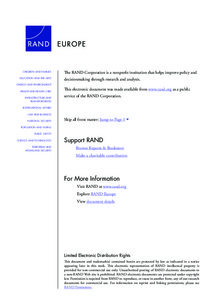Family-related working schedule flexibility across Europe
"One of the major innovations in human resource practices in the last decades has been the proliferation of flexible work practices, such as working from home or work schedule flexibility. The latter especially are often seen as an important means to reconcile family, work, and private life. Th...
| Main Authors: | , , |
|---|---|
| Institution: | ETUI-European Trade Union Institute |
| Format: | TEXT |
| Language: | English |
| Published: |
Santa Monica
2014
Rand |
| Subjects: | |
| Online Access: | https://www.labourline.org/KENTIKA-19116230124919344129-Family-related-working-schedul.htm |
| Summary: | "One of the major innovations in human resource practices in the last decades has been the proliferation of flexible work practices, such as working from home or work schedule flexibility. The latter especially are often seen as an important means to reconcile family, work, and private life. This view is based on the assumption that granting workers greater discretion and more control over their working times should empower them to better balance their work and non-work demands. Previous research has been able to show that flexible working arrangements can indeed be helpful in improving work-life reconciliation, even though findings are sometimes mixed and effects are often small in magnitude. Our findings reveal remarkable variation in work schedule flexibility across countries. While less than ten per cent of workers in Romania report being able to make use of the two options in question, in countries like the Netherlands, Austria and the UK, this share exceeds sixty per cent of the workforce. Further country-level analyses confirmed that GDP per capita is a major predictor of the availability of work schedule flexibility, with greater availability in more affluent countries. In a second step, we analyse which social groups across countries report the availability of work schedule flexibility. Firstly, women reported substantially less access to family-related work schedule flexibility. Secondly, younger workers (under the age of 30) reported less access to a family-related work schedule." |
|---|---|
| Physical Description: | 46 p. Digital |

